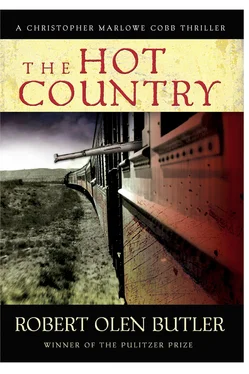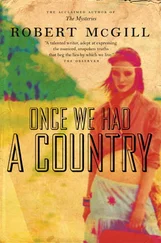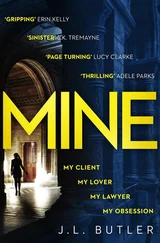“Señora,” I said.
She lifted her face. She looked toward our hands. She turned hers and I placed the gold piece in her palm. Her eyes widened a little when she recognized it.
“I ask only to speak,” I said.
She closed her hand on the coin, put it in a pocket in her skirt, pulled her rebozo over her head, and offered me her other hand.
I took it and helped her down from the boxcar door.
She led me forward. We passed Villa’s caboose, quiet but lit brightly. We passed a flatcar with Villistas lounging and smoking, though fundamentally alert, manning three tripod-mounted Maxim guns. We passed a boxcar of soldiers, also apparently on-duty, the half dozen standing and sitting in the doorway bandoliered and holding rifles. I nodded as I passed. They nodded. And at the next boxcar, the señora stopped. The door was only partway open. I could see the car forward had soldiers as well. Given its placement, if this was the car where they were keeping Luisa, I had a sudden worry that I knew I better put into a question. It might even explain the look Señora Toba-Rojas gave me when I spoke of respect.
She was about to reach up to the door, but I touched her shoulder and she turned to me. “Señora,” I said. “Is this the car. .” I hesitated, trying to say this without saying it. I thought of a phrase and began to speak it.
“No, señor,” she said.
Even as I said, “. . of the public women.”
“No,” she said again, emphatically. “They are the newly arrived women who do not have a man. They are not for sale.”
I nodded. They were only three cars away from Villa’s quarters.
“But available,” I said, low, as if it was an understood secret between the señora and me.
We looked each other steadily in the eyes for a moment.
“Only in a very limited way,” she said, just as low.
They were Villa’s alone for now.
We looked at each other for a moment more. Then Señora Toba-Rojas bent near to me. She said very softly, “Do you love her, señor?”
I hadn’t a clue as to how to answer this question, even simply to say no.
She seemed to think she understood my silence. She touched my arm and turned to the door. She fisted two echoing knocks there.
“No,” I finally answered, though the señora acted as if she did not hear.
She called inside. “Luisa Morales.”
We waited.
I thought: I should walk away. I should ride away . She’d been disarmed and sexually taken — probably raped — by Pancho Villa. It would be all I could do to walk past his little red caboose and not go in and try to kill him.
“Luisa,” the señora called again.
“It’s all right,” I said.
And then she was standing in the door of the boxcar.
All the private fires burning in the desert behind me lit Luisa only dimly. But what I saw of her face I’d seen in women’s faces in Macedonia and in Nicaragua. And seen in other women’s faces, away from wars. And it was not necessarily specific to rape, I was sure. I’d seen some form of this in my own mother’s face late on certain nights, just a few times, but it was a similar thing, and she’d offered no words to explain. Something happened to women, I knew, and in some ways I didn’t know anything else but that. Except it was clearer for me with Luisa Morales. What she had lately been through.
She did not seem to recognize me. Or did not care.
I took off my hat.
I was aware of Señora Toba-Rojas passing behind me. Discreetly leaving us.
Luisa’s face did not change. I assumed she recognized me. Of course she recognized me. I wished now she’d yell at me. Call me a gringo bastard invading her country. Pull a pistol from beneath her rebozo and start shooting. Do something. But her face did not change. And after a moment she vanished back into the darkness, a move so quick and smooth that she seemed to have dissolved into the air. The grace of her vanishing encouraged me. It felt like her .
I should have let that be. I should have turned and gone and let myself keep this final sense of her still being who she was in Vera Cruz. But I would have been lying to myself.
I stepped to the door. I spoke into the darkness. “Luisa.”
I didn’t know what else to say.
“ Viva Mexico, ” I said.
I waited.
After a long moment she was suddenly standing above me. I looked up. Her face remained a mask. A woman of the chorus of some Greek tragedy.
And now she was beginning to kneel.
I took a step back from the car, gave her some space.
She folded herself down at the knees, sat on her lower legs, so I only had to lift my face a little to look into her eyes. And I was close enough that I could see the campfires reflected there.
And she lifted her right hand and she slapped me across the left cheek.
Hard.
My head flipped to the right. My cheek burned.
Somehow I understood.
I straightened my face to her once more.
She lifted her left hand and slapped me across the right cheek.
Just as hard.
I kept my head where she’d put it, almost against my shoulder, my eyes forced back to look the way I’d come. I kept my head there for a clear and thoughtful moment so that when I presented it to her again, it would not seem an act of defiance. It would be an offering.
I gave her my face once more.
She looked for a long while at me.
The fires of the desert wavered now in her gathering tears.
She lifted her right hand. As if to strike. But it paused there between us.
Very softly I said, “Once more, Luisa Morales.”
And she slapped me. Not quite as hard, but hard enough. I braced myself and I did not let my head turn.
Both my cheeks were aflame.
Luisa and I looked at each other.
The light of the desert was tracking thinly down her cheeks.
“As many times as you need,” I said.
She bowed her face and put both her hands there and she wept. Quietly. But wept.
I waited.
She wept. I would have expected, when these tears began to prevail, that she would have retreated back into the darkness. But she did not. She let me watch. And this made me inordinately happy.
I wanted to take her in my arms.
But sometimes I was not stupid with women. I waited and I let her continue to weep, even as I was ready to let her continue to strike me.
Finally, though she made no sound through all this and though she did not withdraw her hands, I sensed that she had stopped. And now she put her hands on her legs, though she kept her face bowed.
I should have waited some more, but I felt I needed to say something. I didn’t know what. Something. And I said, “Thank you for not killing me in the street in Vera Cruz.”
She did not seem to hear at first.
But then, without lifting her face, she said, “I would not have killed you.”
I said, “Thank you for not shooting off the part of me you probably wished to.”
I could see enough of her face to perceive a kind of stopping in it, and she even shook her head minutely, just to one side and back, just once, but then abruptly her hands returned and so did the tears. She wept again, and I could hear it now.
I blundered on. As impulsive as these words were, I did at least quickly look around to make sure no one could hear. “Kill him then,” I said. “I’ll help you.”
This brought her hands down and her face up. Her torso straightened and we were silent for a time: She looked at me and saw me, and she looked beyond me and saw nothing, and then she looked at me and did not see me. And now her legs were moving and she was standing up and she vanished into the dark.
Okay.
I once more thought to go. And I would have. I even turned and took a step away from the boxcar. But I stopped. I stood very still, facing down the track, immobilized now by the ways I’d said the wrong things to her yet again. I understood them all as abruptly as a slap across the face.
Читать дальше












